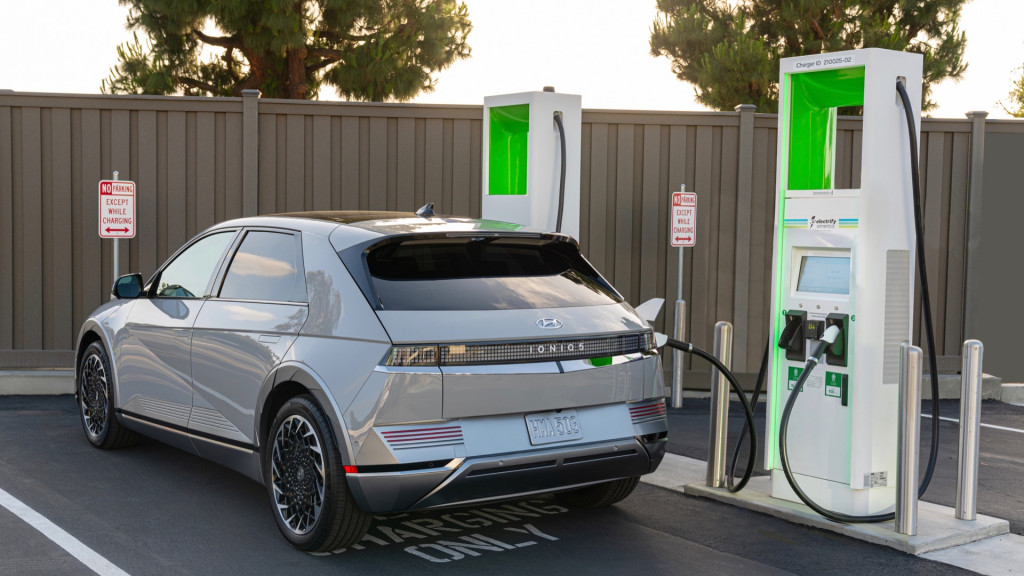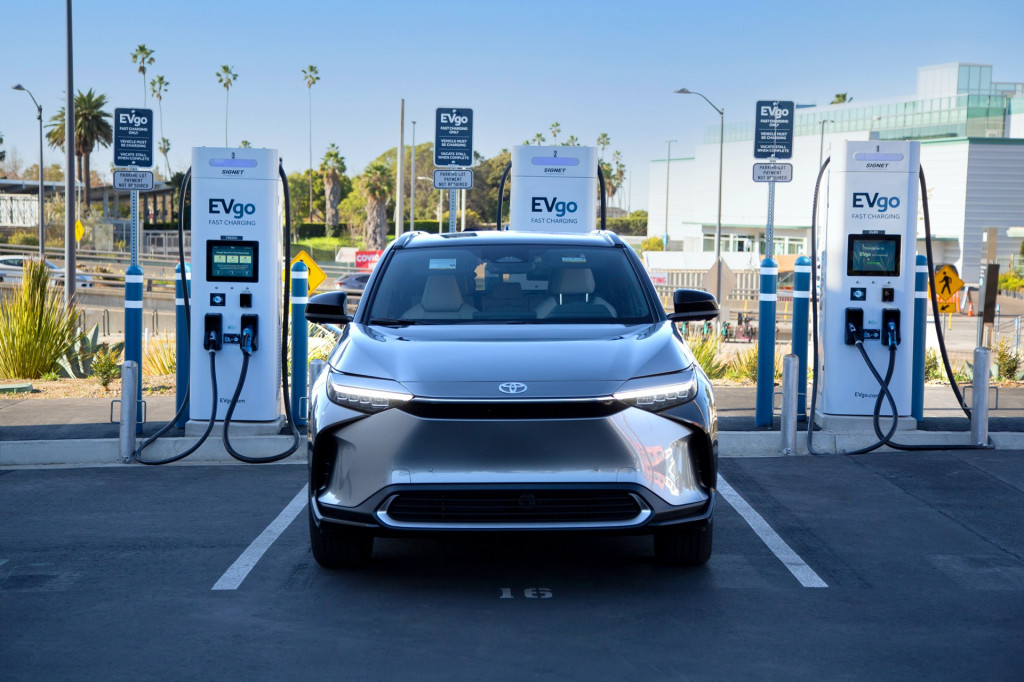States and the federal government are closer to finalizing plans for new federal EV charging infrastructure.
Several states are working to submit plans ahead of a September 30 deadline to receive funds from the National Electric Vehicle Infrastructure Formula Program (NEVI), according to Transport Topics.
States were asked to submit plans for NEVI funding in February. Part of the infrastructure law passed last year, the program was created to disperse most of $5 billion in formula funding earmarked by the infrastructure law for building out a national network of 500,000 charging stations. The law also sets aside 10% of that total for the federal government to provide grants to states to fill in gaps.

2022 Hyundai IONIQ 5 at Electrify America DC fast-charging station
Among the states seeking to tap this funding are Arizona, Arkansas, Indiana, Ohio, Mississippi, Texas, Virginia, and Washington. The amount of money each state is expected to receive varies, from $54.1 million for Arkansas to $407 million for Texas.
While states have been largely left on their own to develop charging-infrastructure plans, the federal government has issued some guidelines. It wants each charging site funded by the infrastructure law to include four 150-kw DC fast chargers, with those sites spaced 50 miles apart, and less than a mile from highways.
Meanwhile, the Department of Transportation (DOT) recently announced the sixth round of Alternative Fuel Corridors. Created in 2015, the Alternative Fuel Corridors program recognizes stretches of highway with significant infrastructure to allow regular travel by alternative-fuel vehicles—including EVs.

2023 Toyota bZ4X at EVgo charging station
The latest round of Alternative Fuel Corridors includes routes in Florida, Kansas, New Jersey, North Carolina, Wisconsin, and the District of Columbia, according to a DOT memo. All routes have been deemed EV ready. The Kansas and Wisconsin routes were also deemed suitable for compressed natural gas (CNG) vehicles, while the latter was approved for liquefied petroleum gas (LPG) vehicles as well.
In the private sector, General Motors, EVgo, and Pilot are actively vying for with its coast-to-coast fast-charging network announced Thursday. It will include 500 DC fast-charging stations—all operating at 350 kw—to be installed at Pilot and Flying J travel centers. The bulk of these stations are expected to come online between 2023 and 2025.












